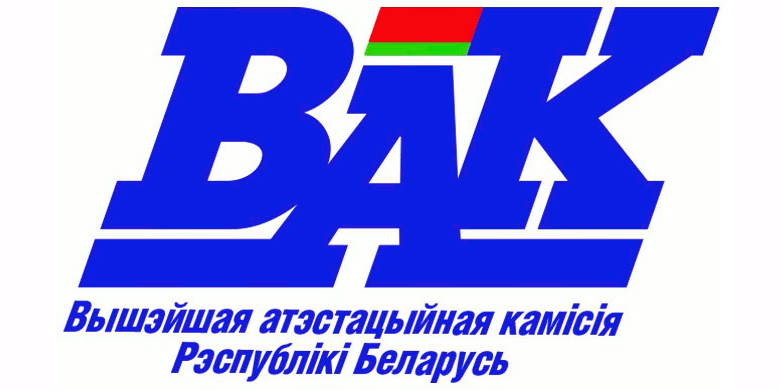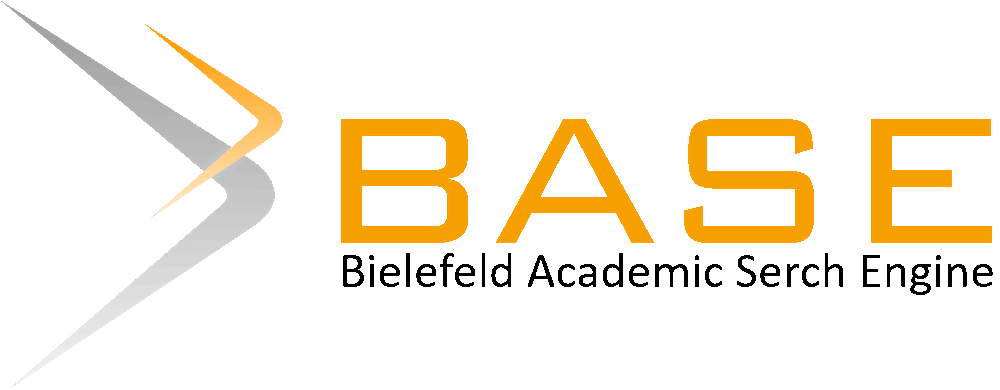Поведенческая парадигма в экономике и финансах: генезис, сущность и практическое применение
Ключевые слова:
поведенческая парадигма, поведенческая экономика, поведенческие финансы, поведенческий надзор, финансовое поведение населения, рациональное и иррациональное поведение экономических агентовАннотация
В статье поднимаются вопросы теории и практики поведенческой экономики, поведенческих финансов. Дополняя рациональный подход принятия экономических решений субъектами экономики классической и неоклассической экономических школ, поведенческие экономисты доказали иррациональную составляющую данного процесса. Поведенческие экономисты создали свою поведенческую теорию экономики и встроили факторы иррациональности принятия решений экономическими субъектами в экономико-математические модели. Достижения поведенческой школы экономики адекватны и применяются при принятии решений на уровне государственного значения, на уровне корпораций и домашних хозяйств. Авторы делают предложения в рамках поведенческой парадигмы и для финансовой системы Беларуси.
Библиографические ссылки
Кун, Т. С. Структура научных революций / Т. Кун ; пер. с англ. И. З. Налетова ; общ. ред. и послесл. С. Р. Микулинского и Л. А. Марковой. – Москва : Прогресс, 1975.
Управителев, А. А. Поведенческий империализм и три стадии развития поведенческой экономики / А. А. Управителев // ЭКО. – 2022. – № 6. – С. 67–88.
Simon, H. A Behavioral Model of Rational Choice / H. Simon // The Quarterly Journal of Economics. –1955. –Vol. 69. – No. 1. – P. 99–118.
Kahneman, D. Prospect theory: An analysis of decision under risk. / D. Kahneman, A. Tverski // Econometrica. – 1979. – No. 47. – P. 263–291.
Положихина, М. А. Уровень развития поведенческой экономики за рубежом и в России. (Обзор) / М. А. Положихина // Социальные новации и социальные науки. – 2023. – № 2. – С. 10–28.
Румянцева, О. И. Денежно-кредитная политика в условиях транзитивной экономики: теория, методология, практика : автореф. дис. … д-ра экон. наук / Румянцева О. И. – Минск, 2019. – 46c.
Золотарева, О. А. Формирование инфра-структуры доверия на финансовом рынке / О.А. Золотарева // Экономика и банки : научно-практический журнал. – 2021. – № 2. – С. 3-12.
Кукса, О. А. К вопросу измерения уровня доверия к отечественной экономике / О. А. Кукса // Экономика и банки : научно-практический журнал. – 2023. – № 1. – С. 3–12.
Покровская, Н. В. Влияние доверия на отношение к налоговой дисциплине в контексте развития экономики в странах Союзного государства / Н.В. Покровская, О.А. Теляк // Экономика. Профессия. Бизнес : научный рецензируемый журнал. – 2022. – № 2. – С. 70-77.
Рудый, К. В. «Потому что так решили мы»: поведенческая экономика Беларуси и ее раскодирование: 2017 / К. В. Рудый [и др.] ; под науч. ред. К.В. Рудого. – Минск : Звезда. – 368 с.
Цели устойчивого развития в Беларуси [сайт]. – URL: https://sdgs.by/ (дата обра-щения: 26.11.2024).
Стефанович, Л. И. Обеспечение стабильности финансового сектора Республики Беларусь / Л. И. Стефанович // Журнал Белорусского государственного университета. Экономика. – 2019. – № 2. – С. 48-56.
Киевич, А. В. Анализ основных показателей финансового рынка Республики Беларусь / А. В. Киевич // Устойчивое развитие экономики: состояние, проблемы, перспективы : сборник трудов XVI международной научно–практической конференции, Пинск, 29 апреля 2022 г. : в 2 ч. / Министерство образования Республики Беларусь [и др.] ; редкол.: В.И. Дунай [и др.]. – Пинск : ПолесГУ, 2022. – Ч. 1. – С. 83-89.
References
Kun Т. С. Struktura nauchnih revolutsiy [The structure of a scientific revolution]. Moskow, Progress, 1975. (In Russian)
Upravitelev А.А. Povedencheskiy imperialism I tri stadii razvitiya povedencheskoy economiki [Behavioural imperialism and the three stages of development of behavioural economics]. EКО. 2022, no. 6., pp. 67–88. (In Russian)
Simon H. A Behavioral Model of Rational Choice. The Quarterly Journal of Economics. 1955, vol. 69, no. 1. pp. 99–118.
Kahneman D., Tverski A. Prospect theory: An analysis of decision under risk. Econometrica. 1979, no. 47, pp. 263–291.
Polozhihina M.A. Uroven razvitiya povedencheskoy ekonomiki za rubezhom i v Rossii. (Obzor) [Level of development of behavioural economics abroad and in Russia. (Review)]. Sotsialnye novatsii I sitsialnye nauki [Social innovations and social sciences]. 2023, no. 2, pp. 10–28. (In Russian)
Rumiantseva О.I. Denezhno-kreditnaya politika v usloviah tranzitivnoy economiki: teoriya, metodologia, praktika [Monetary Policy in Transit Economy: Theory, Methodology, Practice]. Abstract of Doctor’s degree dissertation. Minsk, 2019, 46 p. (In Russian)
Zolotareva О.A. Formirovanie infrastrukturi doveria na finansovom rynke [Formation of trust infrastructure in the financial market]. Econimika I banki [Economics and Banks], 2021, no. (2), рp. 3-12. (In Russian)
Кuksа О.А. K voprosu izmereniya urovnia doveria r otechestvennoy economike [To-wards measuring the level of confidence in the domestic economy]. Econimika I banki [Economics and banks : scientific and practical journal]. 2023, no.1, pp. 3–12. (In Russian)
Pokrovskaya N.V., Tseliak О.А. Vliyanie doveria na otnoshenie k nalogovoy distsipline v kontekste razvitia economiki v stranah Souznogo gosudarstva [Impact of trust on attitudes towards tax discipline in the context of economic development in the Union State countries]. Economika. Professya. Biznes. [Economics. Profession. Business]. 2022, no. 2, pp. 70-77. (In Russian)
Rudiy К.V. et al. «Potomu chto tak reshili mi»: povedencheskaya economika Belarusi I ee raskodirovanie [Because we decided so: behavioural economics in Belarus and its decoding]. 2017, Minsk, Zvezda, 368 p. (In Russian)
Tseli ustoichivogo razvitiya v Belarusi [Sustainable Development Goals in Belarus] Available at: //sdgs.by/ (accessed 26.11.2024).
Stefanovich L.I. Obespechenie stabilnosri finansovogo sectora Respubliki Belsrus [Ensuring stability of the financial sector of the Republic of Belarus]. Zhurnal Beloruskogo gosudarstvennogo Universiteta. Economika [Journal of the Belarusian State University. Economy]. 2019, no.2, pp. 48-56. (In Russian)
Kievich А.V. Analiz osnovnih pokazatelei finansovogo tynka Respubliki Belarus [Analysis of the main indicators of the financial market of the Republic of Belarus]. Ustoichivoe razvitie econimiki: sostoyanie, problemy, perspectivi [Sustainable economic development: state, problems, prospects]. Pinsk, PolesSU, 2022, pp. 83-89. (In Russian)
Загрузки
Опубликован
Как цитировать
Выпуск
Раздел
Лицензия
Автор предоставляет Редакции журнала на весь срок действия исключительных прав на Произведение следующие права:
1. право на воспроизведение Произведения (опубликование, обнародование, дублирование, тиражирование или иное размножение Произведения) без ограничения тиража экземпляров. При этом каждый экземпляр Произведения должен содержать имя автора Произведения;
2. право на распространение Произведения любым способом;
3. право на включение в составное произведение;
4. право на доведение до всеобщего сведения;
5. на использование метаданных (название, имя автора (правообладателя), аннотации, библиографические материалы и пр.) Произведений путем распространения и доведения до всеобщего сведения, обработки и систематизации, а также включения в различные базы данных и информационные системы.
6. право переуступить на договорных условиях частично или полностью полученные по настоящему договору права третьим лицам без выплаты Автору вознаграждения.
Автор передает права Редакция журналау по настоящему Договору на основе неисключительной лицензии.
Редакция журнала обязуется соблюдать предусмотренные действующим законодательством авторские права, права Автора, а также осуществлять их защиту и принимать все возможные меры для предупреждения нарушения авторских прав третьими лицами.
Территория, на которой допускается использование прав на Произведения, не ограничена.
Автор также предоставляет Редакция журналау право хранения и обработки следующих своих персональных данных без ограничения по сроку:
• фамилия, имя, отчество;
• дата рождения;
• сведения об образовании;
• сведения о месте работы и занимаемой должности;
• сведения о наличии опубликованных произведений литературы, науки и искусства.
Персональные данные предоставляются для их хранения и обработки в различных базах данных и информационных системах, включения их в аналитические и статистические отчетности, создания обоснованных взаимосвязей объектов произведений науки, литературы и искусства с персональными данными и т.п.
Редакция журнала имеет право передать указанные данные для обработки и хранения третьим лицам при условии уведомления о таком факте с предоставлением сведений о третьем лице (наименование и адрес) Автору.
Отзыв согласия на хранение и обработку персональных данных производится Автором путем направления соответствующего письменного уведомления Редакции журнала.
Автор и Редакция журнала несут в соответствии с действующим законодательством Республики Беларусь имущественную и иную юридическую ответственность за неисполнение или ненадлежащее исполнение своих обязательств.
Сторона, ненадлежащим образом исполнившая или не исполнившая свои обязанности, обязана возместить убытки, причиненные другой Стороне, включая упущенную выгоду.
Все споры и разногласия Сторон, вытекающие из условий настоящего Договора, подлежат урегулированию путем переговоров, а в случае их безрезультатности, указанные споры подлежат разрешению в суде в соответствии с действующим законодательством Республики Беларусь.
Расторжение настоящего соглашения возможно в любое время по обоюдному согласию Сторон, с обязательным подписанием Сторонами соответствующего соглашения об этом.
Расторжение настоящего соглашения в одностороннем порядке возможно в случаях, предусмотренных действующим законодательством, либо по решению суда.
Во всем, что не предусмотрено настоящим соглашением, Стороны руководствуются нормами действующего законодательства Республики Беларусь.















.gif)
